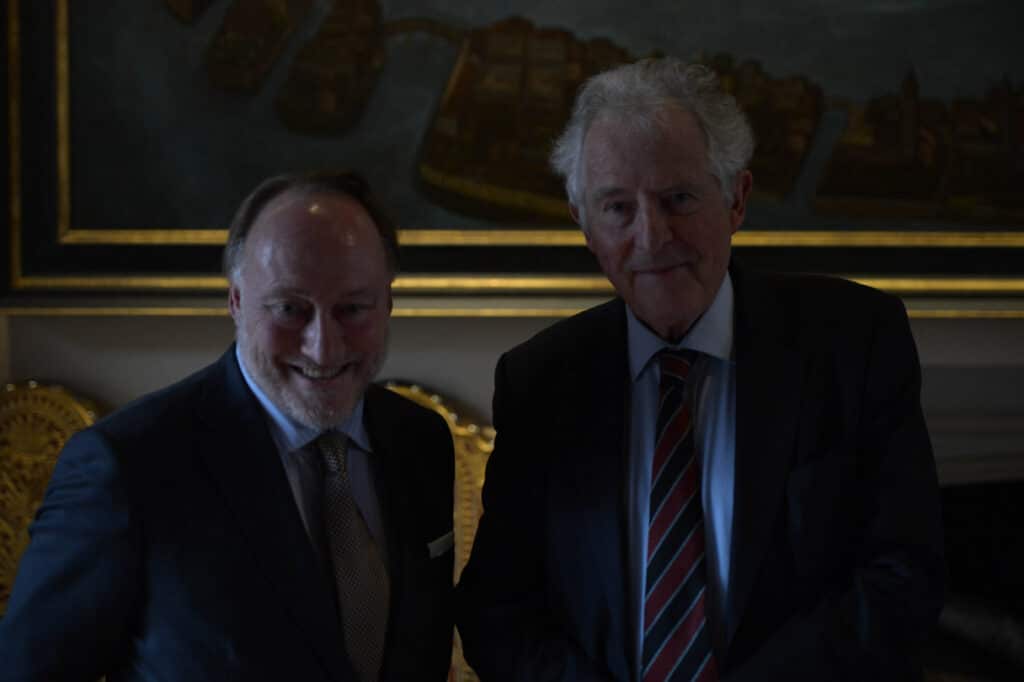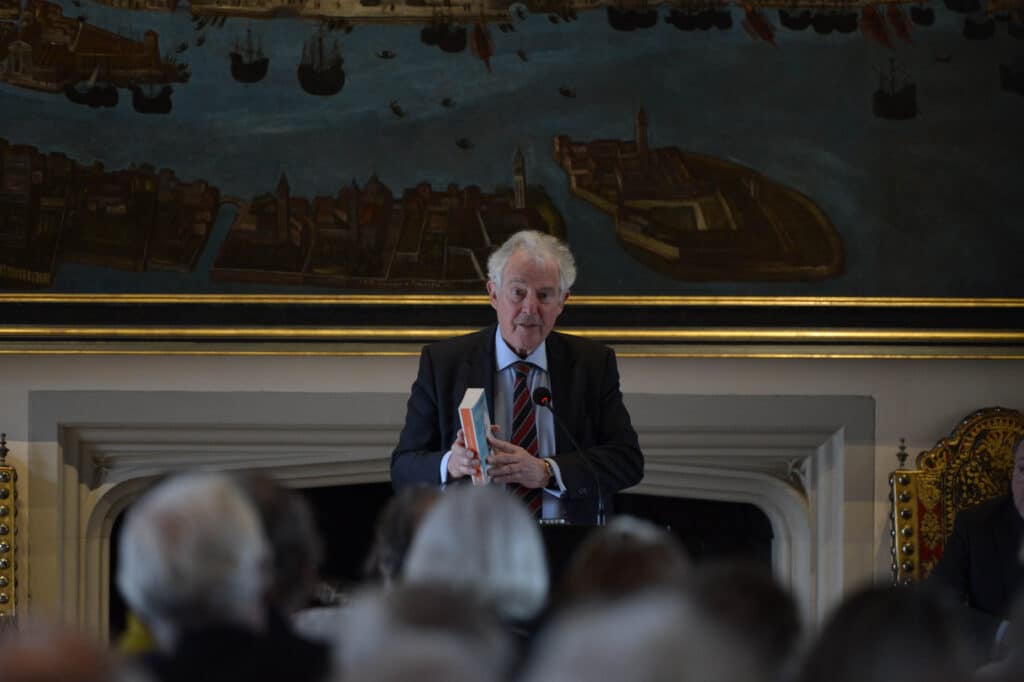On Thursday 27 April, the Henry VI Society convened in Election Hall to hear from Andrew Roberts, Lord Roberts of Belgravia, speak on the subject of King George III. The Henry VI Society welcomes individuals who have pledged a gift in their wills to Eton. The Society has over 300 members, primarily comprising of Old Etonians, but also families whose boys have benefited from the School and some who have no connection to Eton, but who wish to bequeath something to the institution.
King George III, on the throne from 1760 to 1820, making him England’s longest serving male monarch, is the subject of Lord Robert’s latest biography George III: The Life and Reign of Britain’s Most Misunderstood Monarch. Lord Roberts highlighted at the beginning of his lively and engaging talk that his legacy has been marred by perceptions of him being a mad tyrannical king. Misrepresentations made by historians and biographers on both sides of the Atlantic have sullied his name and caused George III to be referred to in the Declaration of Independence as being ‘unfit to be the ruler of a free people’.
Lord Roberts stressed that the primary basis for many people’s criticism of King George’s moral and political prowess has been his supposed madness, attributed by many to the blood disease porphyria. However, historians including Lord Roberts, have concluded in recent years that the King had no such disease, and that the misreporting of his symptoms to doctors is what led to this incorrect prognosis. Instead, he argued that the King was likely suffering from was instead a form of manic depression, commonly known as bipolar disorder. The limitations of 19th century medicine would have made diagnosing and treating such an illness impossible and King George III had to suffer through some excruciating procedures which the royal doctors of the time believed to be necessary to try to cure the disease.
He conveyed that many believe that King George’s madness is what led him to losing the American colonies, but his first attack occurred five years after the War of Independence was lost, so this cannot be the case. In his view, the evidence also fails to support the claims that George III was a tyrant. King George never sent troops to an American state – bar Boston in 1768 – he never arrested an American editor or closed an American newspaper and he never owned or sold a slave, nor invested in companies involved in the slave trade. Therefore, Lord Roberts argued that in a time period when Catherine the Great killed thousands, King George III cannot surely be considered to have been a tyrant. As a result, Lord Roberts stated that it is now time to re-assess King George’s position in history and to think about some positive aspects of his reign alongside the failures.
He highlighted that George III was responsible for establishing the principle of constitutional monarchy, whereby the monarch acts as head of state but the country is governed by a ministerial government. During his reign, much power shifted from the nobility to elected representatives. Furthermore, by buying Buckingham Palace in 1761 and establishing the annual trooping of the colour and the royal walkabout, King George III was responsible for so many of the royal institutions which we still know today. The Royal Academy was also established in 1768 and he is responsible for purchasing over half of the paintings in the Royal Collection. George III was at the cutting edge of the enlightenment, bringing Mozart to London and assembling largest collection of scientific instruments in Europe, still on display at the Science Museum.
Lord Roberts also didn’t ignore the fact that King George experienced much hardship throughout his life, losing his father at the age of 12 and battling his debilitating mental illness in the later part of his reign. Nicknamed ‘farmer George’ due to his agricultural interests, King George III was widely admired by the population and contributed much to Britain’s cultural prosperity at the time. It was particularly interesting and memorable to hear that despite his collection of some 40,000 maps, King George III felt he had a good enough understanding of the country to not feel the need to travel very far during his reign – remaining in the South of England and never venturing north of Worcester nor west of Weymouth.
Historians have long used King George’s mental instability against him, but despite the difficulties he faced, King George was nevertheless a successful king overseeing a newly industrialising Britain. During King George’s reign, it became more and more important for a monarch to reign rather than rule, to provide stability rather than aggressive leadership and King George adapted well to these changes.
Lord Roberts suggests it is now time to go beyond the American historians who have ridiculed and mocked King George III for so long. He has waited almost 300 years for rehabilitation but perhaps it has come at last.






